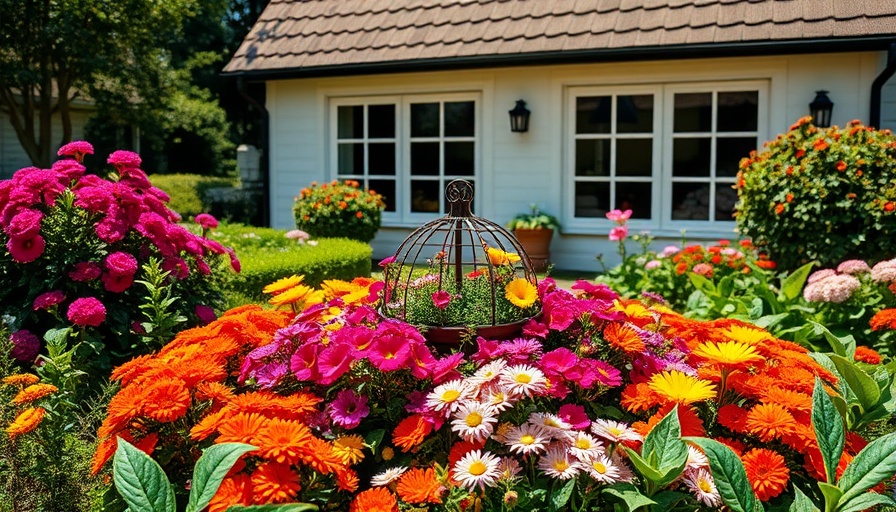
Effective Strategies to Combat Summer Heat on Your Garden
Summer heat can put your garden to the test; however, with a little foresight and knowledge, you can protect your beloved plants from wilting and stress. High temperatures not only affect the aesthetics of your landscape but can also set the stage for greater vulnerabilities, like pests and diseases. To tackle the summer challenge head-on, apply these expert tips to ensure your garden stays thriving.
Understanding Plant Stress Under High Temperatures
The intense summer heat can induce various symptoms in plants, including wilting leaves, scorched foliage, and dropped buds. In regions like Bergen County, where temperatures can soar, it's crucial for gardeners to recognize these signs. Understanding plant stress is the first step in mitigating its impact. Plants lose moisture rapidly during heat waves, making them susceptible to a range of environmental challenges. With the right strategies, however, you can keep your garden resilient.
Water Wisely: The Key to Plant Survival
One of the most essential aspects of plant care in the summer is water management. Aim to water your garden early in the morning or late at night when the sun is less intense. This timing minimizes evaporation and allows moisture to reach the roots effectively. Instead of frequent shallow watering, soak your soil thoroughly just 2-3 times a week. This approach encourages deep root growth, giving plants the resilience they need to survive hotter months. Consider using drip irrigation or soaker hoses, which provide essential hydration directly to the root system while conserving water.
The Power of Mulching: Keep Your Soil Moist
Employing organic mulch is another fantastic strategy to protect your plants from heat stress. A layer of 2-3 inches of materials like shredded bark or compost around trees, shrubs, and flower beds aids in retaining soil moisture and regulating temperature. Additionally, mulch acts to suppress weed growth, which can otherwise compete with your plants for resources. This technique not only conserves water but also fosters a healthier ecosystem within your garden.
Choosing the Right Plants for Hot Conditions
Timing is crucial, especially if you’re planting new varieties in summer. Opting for heat-tolerant plants can make all the difference in your garden's health. In Northern New Jersey, consider adding perennials such as coneflowers, black-eyed Susans, coreopsis, sedum, and Russian sage. These varieties not only withstand summer heat but also add vibrant colors to your landscape.
Creating Shade for Sensitive Plants
For plants that are especially sensitive to heat, creating temporary shade can provide immediate relief. Using garden fabric, umbrellas, or old sheets can reduce sun exposure during peak temperatures. This simple solution helps protect delicate plants from overheating and minimizes stress levels during sweltering days.
Looking Ahead: Summer Garden Care for Future Seasons
With sustainability in mind, these practices can enhance not only your garden's resilience but also support local ecosystems. Maintaining a healthy landscape throughout summer prepares your garden for future seasons, ensuring lasting beauty and vitality. As you implement these strategies, remember that each season offers unique challenges and opportunities. Evaluate how your plants respond and adapt your care accordingly.
Whether you're a seasoned gardener or just starting, nurturing a garden through the summer heat isn’t as daunting with the right information. Protect your plants and elevate your landscape by employing these expert tips. Happy gardening!
 Add Row
Add Row  Add
Add 




Write A Comment